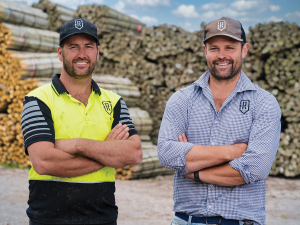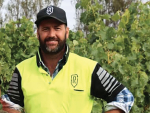Plans to divert 3,750 tonnes of broken vineyard posts from landfill each year, while providing a cost-effective fencing option for farms, riparian plantings and significant natural areas, impressed judges in the 2023 Cawthron Marlborough Environment Awards.
Repost - a company founded by a St Arnaud farming family and a Marlborough viticulturist - won the wine industry category of the awards, sponsored by Wine Marlborough. "Repost's goal is to divert all broken vineyard posts in Marlborough from going into landfill, and they are on the road to achieving that," judges said in their report. They called it an "all-round win for Repost, the wine industry, farmers and the environment".
Stu Dudley, who won Young Viticulturist of the Year in 2010, says he and fellow founder Greg Coppell wanted a business that was good for more than the bottom line. Repost has ticked plenty of boxes, addressing the environmental hazard of stockpiled vineyard posts while helping wine companies and offering landowners fencing at less than a third of the cost of new posts. Stu says they had a busy period in the lead up to the April awards, getting repurposed posts on the road for farmers and growers hit by Cyclone Gabrielle. "There's an awful lot of damage to farms, particularly on the East Coast, that we can provide a solution for."
Wine Marlborough General Manager Marcus Pickens says the company is an example of wine companies and supporting industries searching for ways to do business better. "The Environment Awards shine a light on some of the great initiatives being undertaken, providing inspiration to us all."














